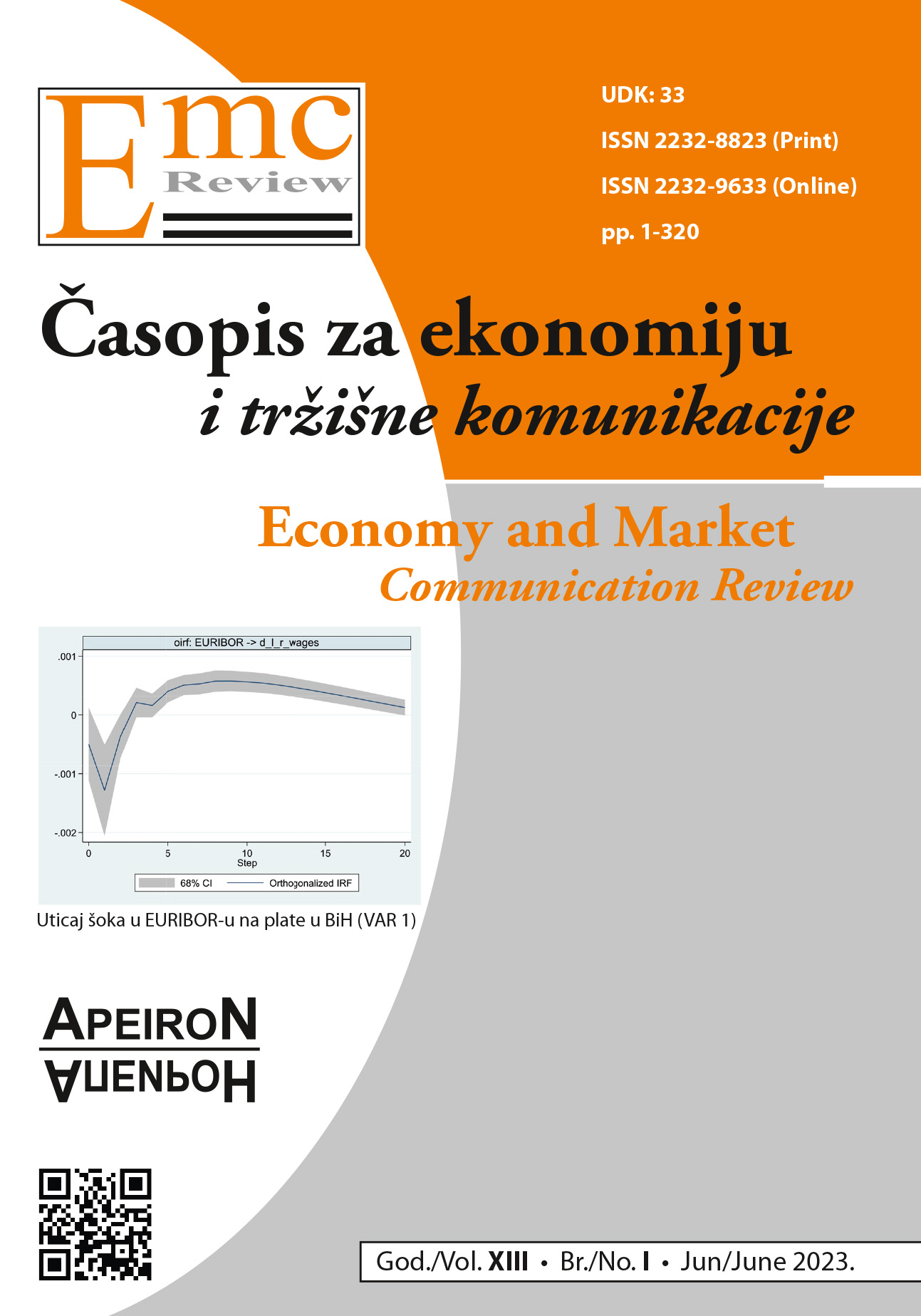EFFECTS OF DIRECT FOREIGN INVESTMENTS ON THE ECONOMY OF THE REPUBLIC OF CROATIA
DOI:
https://doi.org/10.7251/EMC2301150SAbstract
The aim of the paper is to investigate and provide an argumentative explanation of the effects that direct foreign investments have on selected macroeconomic indicators in the Republic of Croatia in the period from 2000 to 2020. This paper analyses the effects that direct foreign investments have had and are having on selected macroeconomic indicators of the Republic of Croatia over a 20-year time series. Most often, advocates of a greater inflow of FDI argue their positions with GDP growth, higher employment, price stability, increased exports of goods and services, and a generally better standard of living for Croatian citizens. The very entry into the Union created numerous advantages for Croatian companies, facilitated the exchange of goods with the members, but did not bring the expected influx of investments. Of the desired numerous greenfield and brownfield investments and mergers and acquisitions of companies, the realization was below expectations due to the stated objective, but also numerous subjective reasons. More precisely, investments have arrived in tourism and trade, but have been absent in basic industry and agriculture. The developments that have been observed in recent years will certainly, in addition to attracting foreign capital, contribute to the Croatian economy, especially in the IT field and green technologies. Investment experience so far shows that in the Republic of Croatia, most foreign investments have been reduced to the purchase of majority ownership in domestic vital companies, which has resulted in job reductions, disincentives for exports, and impairment of national competitiveness. In the sense of the above, the starting hypothesis of the work is: based on the knowledge of the theoretical characteristics of foreign direct investments and the functioning of the movement of international capital and technology transfer, the importance of foreign direct investments for the economy of the Republic of Croatia can be presented. In the analytical part of the paper, statistical methods of linear regression and correlation were used to analyse the influence of direct foreign investments on GDP, employment, long-term interest rate and current account of the balance of payments. The basic research results show that there is a clear and moderate connection between FDI and GDP. The conclusion of the research in the paper emphasizes how the beneficial effect of the inflow of FDI on the gross domestic product indirectly or directly positively affects employment, long-term interest rates and the balance of payments of the Republic of Croatia. Based on the analysis carried out, it can be stated that foreign direct investments can bring improvement to the national economy only when; if they target more advanced industries so the potential technological spillovers are greater, if they establish strong ties with domestic companies that can absorb spillovers in such a way, if part of the production is exported which has a positive effect on the balance of payments and if they motivate domestic companies to follow them.
